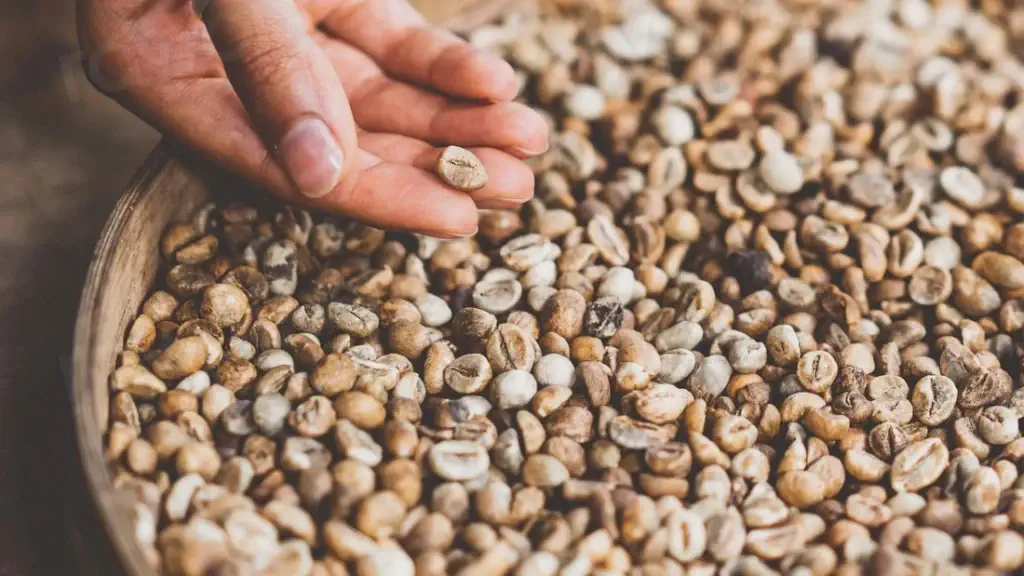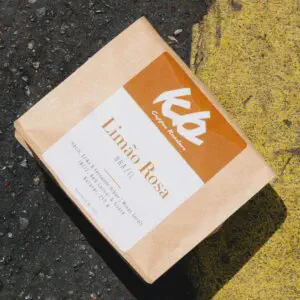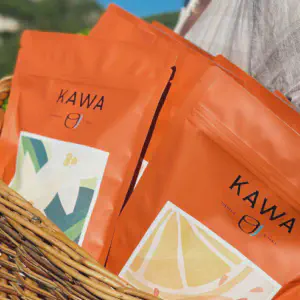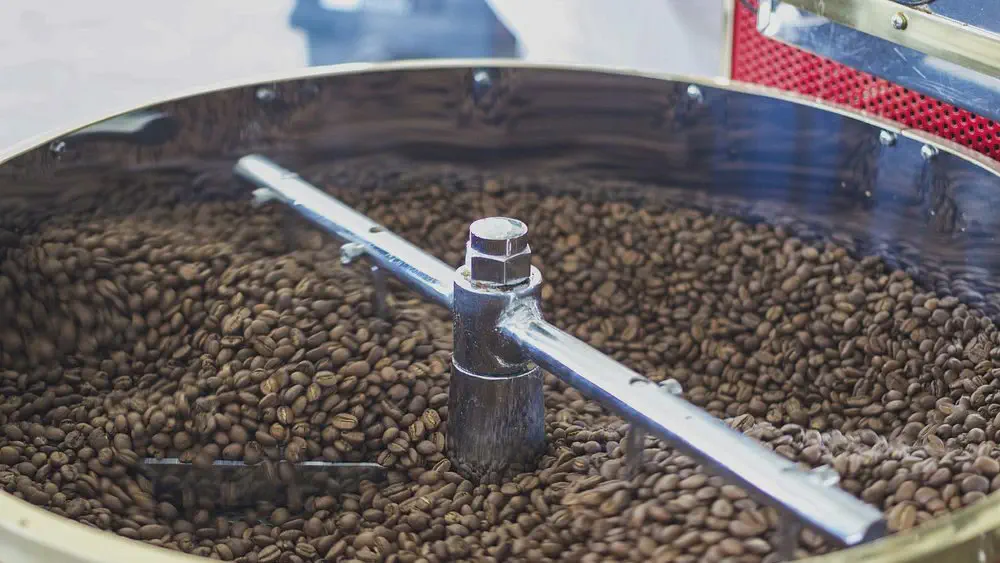Discovering New Roasters — January 2024

Discover the monthly subscriptions offered by roasters, an innovative way to explore the delights of specialty coffee while awakening your taste buds to unexplored flavors. In this article, I share my experience with two Parisian roasters, KB Roasters and Kawa, and help you determine whether this caffeinated adventure is worth experiencing. Let yourself be transported by this sensory immersion and explore the fascinating world of coffee!
In my quest for ever-increasing knowledge, I discovered monthly roaster subscriptions, in France as well as in other European countries. And I decided to give in to temptation…
As you may know, coffee is actually much more than just a beverage, and the bottomless pit that is specialty coffee may still intimidate you a bit. Because while specialty coffee is a sensory experience that awakens our taste buds and transports us to a universe of multiple flavors, rich and varied, it’s also a cost that not all of us are ready to assume when taking our first steps in this field.
Having been a barista for over 7 years, I first discovered coffee as a fine product through my studies in the hospitality and restaurant industry, then as a gourmet pleasure during my various travels around the world. At the dawn of this new year, which promises to be full of enriching projects for me, I thought it would be interesting to learn even more and discover a whole bunch of new coffees. That’s why roaster subscriptions pique my curiosity. Receiving different and freshly roasted coffees each month, what a great idea! But is it really worth it? This is the question I want to provide some semblance of an answer to each month in 2024.

For January, I selected 2 roasters well known to the public, KB Roasters and Kawa, both located in Paris (France).
From KB, I chose to receive:
- 2x250g espresso: €30.00
- 2x250g filter: €30.00
From Kawa, I chose to receive:
- 2x200g espresso “micro-lot”: €29.90
- 2x200g filter “micro-lot”: €29.90
The “micro-lot 88+” option allows you to receive only exceptional coffees.
KB Roasters (Paris) — Coffee subscription: speed, freshness and flavor profiles
While KB Roasters doesn’t share SCA scores (Q Grading) for their coffees, this is on the contrary Kawa’s specialty, as they specifically offer their coffees based on SCA rating on their website.

I was pleasantly surprised by the speed of service from KB Roasters. Subscription ordered and received in less than three days after the year-end holiday period, which is a notable argument! The bags received had also been roasted a few days earlier, so I had to wait a few more days before consuming them (it is commonly accepted that a coffee will be at its best between 7 and 21 days after roasting date). The coffees received were available in the online shop at the time of receipt, and the price savings were around one euro.
Among the KB Roasters selection, there was:
- Limao Rosa: natural espresso from Brazil
- Aurora Anaerobic: anaerobic washed espresso from Nicaragua
- Huancas Fidel: natural filter from Peru
- Chelichele Oro: anaerobic fermentation filter from Ethiopia
Among these four coffees are two more classic processes, and two more experimental ones. The origins are not very varied, three come from South and Central America, and one from Africa. Looking at the roaster’s shop and social media, I notice that coffees from Asian countries are also available, which is a plus for me, as I’m specifically looking to discover new flavors.
My first big surprise was with the Brazilian espresso, which I didn’t expect to like at all. I have the unfortunate tendency to disdain Brazilian coffees. As the world’s leading producer, Brazil exports just as many average-quality coffees as it does little gems. And at the risk of being disappointed, I often miss these gems. KB Roasters offers here a very round and smooth coffee, with notes of milk chocolate, almonds, and a light touch of citrus.
The second espresso is, on the other hand, more floral, with tangy notes but without astringency. The two filters, while being different from each other, are both fruity and have that exotic side that I appreciate very much in coffees prepared using gentle methods. Small thumbs up for the Chelichele Oro, a filter coffee without acidity, with a very light and controlled bitterness, and presenting really pleasant notes of red fruits, berries and cocoa.

Kawa (Paris) — Micro-lots 88+ subscription: experimental coffees and sensory profiles
In comparison, the service from Kawa took more time, but upon receiving the package, the coffees had been (three out of four) roasted after the order was placed, which very clearly justifies the time spent preparing it. Also, none of the coffees received are currently available on the online shop, or at least not in the same type of roast as the one received. I therefore cannot tell you if the subscription price is advantageous. However, I will check during the course of the month, as well as next month, if what I received is posted online.
I had already, on several occasions, bought coffee from Kawa, either directly in store or on their website, so I was not particularly surprised by the contents of my package. Kawa is renowned for offering funky and out-of-the-ordinary coffees, sometimes with really very particular processes, such as the strawberry honey.
The little surprise of January was the presence of two coffees from Nestor Lasso’s farm, a young Colombian producer who, with his brother, has made himself known internationally thanks to his experimental techniques. In other words, a UFO in the world of coffee. But also a Jhoan Vergara, whose Las Flores farm is associated with Nestor Lasso’s.
So here is the list of those selected by Kawa for this month of January:
- Jhoan Vergara: anaerobic washed espresso from Colombia
- Nestor Lasso (Chiroso): anaerobic washed espresso from Colombia
- Finca Hartmann: natural filter from Panama
- Nestor Lasso (Typica): anaerobic washed filter from Colombia
A really interesting panel, although exclusively from Central and South America (also considering that Colombia and Panama share a border and produce, with a few exceptions, the same coffee varieties).
The coffee from Jhoan Vergara’s farm is a true little gem, a thick and syrupy Java, with notes of exotic fruits and yellow fruits. Very low in acidity and naturally sweet and round, it’s a coffee better served as a latte. The two Nestor Lasso coffees are surprising—between the mentholated Chiroso with citrus notes and the Typica with candy-like flavors, there’s plenty to explore in terms of tasting. The exercise was interesting, and if you want to discover new flavors through very particular specialty coffees, I highly recommend El Diviso’s production.
My favorite was the last one I tested, the famous Finca Hartmann from Panama. A very round, thick filter coffee, with an interesting and very almond-like bitterness. The red fruit and brown sugar notes are enhanced by gentle brewing methods.

To sum up this caffeinated January, we’re dealing with two very different roasters, with values and working methods that are opposite to each other. Nevertheless, both are very interesting.
After careful consideration, I think I’ll only keep the espresso subscription with KB and the filter subscription with Kawa for February, and use the remaining budget to test another roaster at a roughly similar price point. If you have any ideas or a particular shop that interests you, feel free to tell me in the comments!
